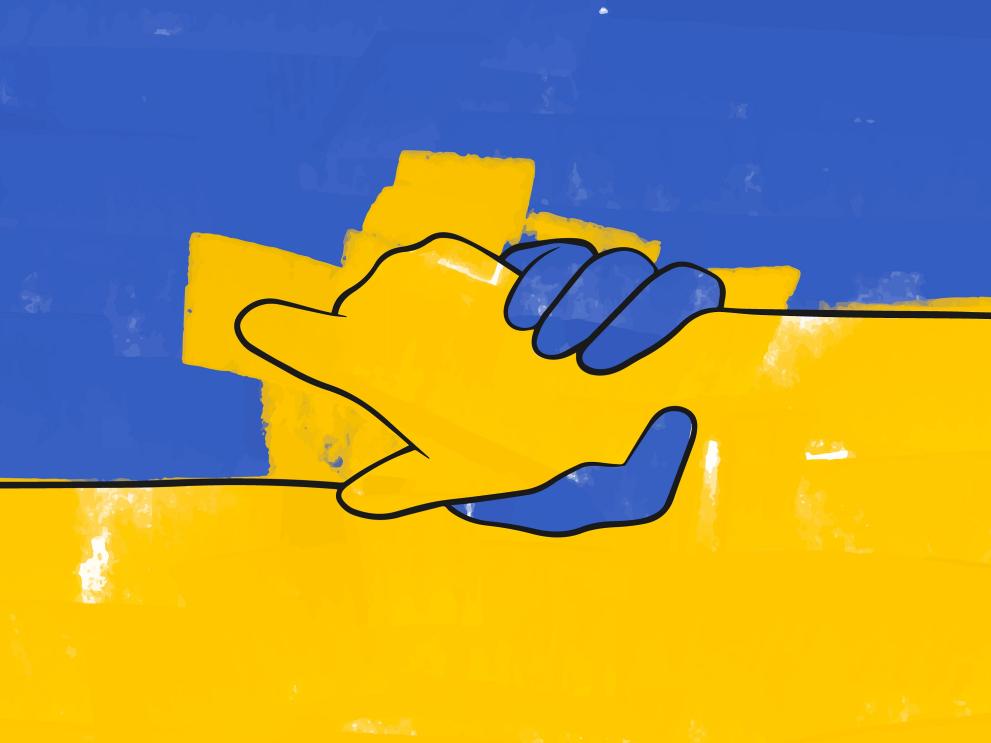
This 24 February marks two years from Russia’s invasion of Ukraine. It also marks two years of unwavering EU solidarity towards Ukraine and the over 4 million people living under temporary protection in the EU.
As multiple EU funded projects ensuring access to information, protection, housing, healthcare, education, and the job market are still ongoing, we revisit some of those that set new standards for humanitarian reception and constitute best practices in first-line humanitarian assistance.
First-line information and emergency assistance
With over EUR 2 million in EU contribution, the Client Centre for Foreigners was set up by the Czech Ministry of the Interior in 2020 to provide comprehensive information to third country nationals on legal obligations, procedural issues, requirements for applications, and other administrative procedures. The call centre’s staff provide information in a variety of languages. Now, they have a special Ukrainian line, ensuring coverage of tens of thousands of requests by people displaced from Ukraine during the past two years.
Following Russia’s military aggression, Member States and the EU took immediate measures to address the risks of trafficking in human beings among people fleeing Ukraine. Under the lead of the EU Anti-trafficking Coordinator, a Common Anti-Trafficking Plan was developed to address prevention, awareness raising, as well as law enforcement and judicial cooperation, while promoting a gender-sensitive approach. Safe Hut, a noteworthy AMIF funded project, was launched in 2022 to protect non-EU women and girls who were at risk or victims of trafficking in human beings. Safe Hut was set up with a particular focus on women and girls’ victims of trafficking fleeing the humanitarian crisis in Ukraine. The project’s main objective is to ensure that women and girls who are at risk for trafficking are provided with safe spaces where they can voice their needs and raise attention on their rights. It also ensures access to knowledge, skills and a range of relevant services, while ensuring long-term assistance and support for survivors of human trafficking.
Housing and accommodation
The Safe Homes project was launched to support EU countries and organisations in setting up private hosting arrangements, where citizens welcome people fleeing the war in Ukraine in their homes. In Poland, for instance, 1.6 million found refuge with local families between February 2022 and early 2023. Funded by the European Commission and implemented by the International Federation of the Red Cross and Red Crescent Societies, the project helps hosts, national, and local stakeholders, to tackle operational challenges, deal with hosts’ fatigue, and elaborate exit strategies by helping displaced people become independent. This roughly EUR 5.5 million project ensures the coordination of a full cycle of services, from needs assessment, registration, and case management, to matching hosts with beneficiaries, offering protection services and support to hosts, in Belgium, France, Germany, Ireland, Hungary, The Netherlands, Luxembourg, Poland, Romania, and Slovakia. The project also identifies lessons learnt looking towards the future.
Another project that set new standards in humanitarian reception is the rehabilitation of two buildings by the municipality of Cascais, Portugal, with a network of organisations and volunteers, to accommodate displaced people fleeing the war in Ukraine. Co-funded by the EU with EUR 900,000, the project has accommodated more than 320 people, since March 2022, making the municipality of Cascais the second largest host of Ukrainian refugees in Portugal, after Lisbon.
Support for social integration
The EU co-funded Integration, adaptation, acceptance project was set up to support the Polish authorities with the reception and integration of Ukrainian citizens and other non-EU nationals, who live in Lower Silesia after having fled conflict. The project encompasses a vast number of services, from information points and counselling to education for youth and adults, as well as assisting people in legalising their residence and employment – actions considered as the basis for integration. Moreover, in the frame of the language courses offered, the project proposes support for intercultural education in schools. It has received EUR 1.3 million in EU funding.
Similarly, the Czech Integration Centres have been recognised by the European Commission as a good practice that could be replicated in other EU countries. The Centres operate in all 14 regions of the country, providing information, social and legal counselling, Czech language courses, and courses of socio-cultural orientation to third country nationals. These centres have helped thousands of Ukrainians to settle in the Czech Republic, fostering multicultural dialogue and events among other actions.
Find out more
Meet the people who have received first-line humanitarian assistance in the EU and hear their message to European citizens.
Details
- Publication date
- 24 February 2024
- Author
- Directorate-General for Migration and Home Affairs

